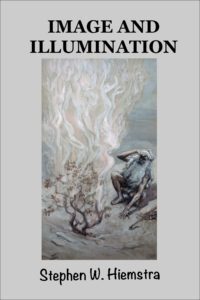Creation and Stewardship

In the beginning, God created the heavens and the earth. (Gen 1:1)
By Stephen W. Hiemstra
The act of creation provides a surprisingly important description of God’s character.
God created the heavens and the earth ex nihilo, out of nothing, which implies that he is self-sufficient. He does not win creation in a wrestling match with Satan, a monster, or any other contender, implying that he has no peers. Creation was neither a prize of war nor a gift from a relative. This verse is a simple declaration having no contingencies or probabilities. Creation implies loving care just as we might value something that we have built, molded, or baked.
Creation is work from which God later rested (Gen 2:3). God’s only son did manual labor, working with his hands as a carpenter and bestowing honor on the work itself (Welchel 2012, 7). Most of the disciples worked as fishermen. Jesus’ table ministry implied that he ate and drank with people who worked for a living (Matt 11:19).
A disabled veteran once worked in a kitchen. He hardly wrote anything at all. But he committed his work during the day to God in prayer. Brother Lawrence (1982, 23) wrote: “We should offer our work to Him before we begin and thank Him afterwards for the privilege of having done it for His sake.” He simply applied Paul’s advice: “Pray without ceasing.” (1 Thess 5:17) He became one of the church’s most-prized spiritual writers.
Stewardship
God created us as stewards of creation: “The LORD God took the man and put him in the garden of Eden to work it and keep it.” (Gen 2:15) Eden is not the entirety of creation in the Genesis account, but it is more like a piece of heaven on earth. The role of a steward in political terms might be likened to that of a prime minister (or regent) who manages a government on behalf of the sovereign, often a king or queen. In this sense, we are stewards of creation, which is owned by God (Lev 25:23).
Schlossberg (1990, 316) writes: “A steward is the caretaker of property that belongs to another. A good steward husbands the property and causes it to produce its proper income.” In the parable of the talents (Matt 25:14-29), Jesus pictures the good steward as not only earning income (depositing with a banker), but also taking risks to invest the property and earn above-average returns (doubling property value). By contrast, the bad steward allows the property to depreciate (hoarding property).
Stewardship has wide implications for family and community life because not everyone is equally willing to strive to become a good steward. The Apostle Paul cautions: “If anyone is not willing to work, let him not eat. For we hear that some among you walk in idleness, not busy at work, but busybodies.” (2 Thess 3:10-11) We must be good stewards of our resources and our time. Good stewardship even guides Jesus’ restraint in evangelism: “And wherever they do not receive you, when you leave that town shake off the dust from your feet bas a testimony against them.” (Luke 9:5)
Participation in Public Policy
Good stewardship of creation suggests at least two things about our participation in public policy. First, if God is self-sufficient in creation, we should be too. Whenever possible, our families, churches, and public policies should restrain our expenditures within our budgetary means. Second, when we take on debt, we do so primarily to make prudent investments. Borrowing money to buy a car needed to go to work is an investment; doing so to buy a flashy car to impress the neighbors is not. Likewise, equipping our children with skills to face tomorrow is an investment; sparing them hard work in school is not.
In recent years, anxiety about the fragility of our earth’s environment has reached a fever pitch. Where nineteenth century anxiety focused on limits to the quantity of food available to feed a growing population, recent concerns about global warming might be described as prophecy of an ecological Armageddon. How should Christians respond to these concerns?
We can do a number of things:
◆We can pray for the Holy Spirit to sustain us and our planet.
◆We can inform ourselves and others about ecological matters.
◆We can reduce unnecessary consumption of energy and products known to create environmental hazards.
Following Thoreau (1960, 62-63), we can live a Spartan lifestyle as a spiritual discipline, mindful of God’s provision and thankful for his protection. Waste not; want not.
References
Lawrence, Brother. 1982. The Practice of the Presence of God (Orig Pub 1691). New Kensington, PA: Whitaker House.
Schlossberg,Herbert. 1990. Idols for Destruction: The Conflict of Christian Faith and American Culture. Wheaton: Crossway Books.
Thoreau, Henry David. 1960. Walden and Civil Disobedience (Orig pub 1854). Edited by Sherman Paul. Boston: Houghton Mifflin Company.
Whelchel, Hugh. 2012. How Then Should We Work? Rediscovering the Biblical Doctrine of Work. Bloomington, IN: WestBow Press.
Creation and Stewardship
Also see:
The Who Question
Preface to a Life in Tension
Other ways to engage online:
Author site: http://www.StephenWHiemstra.net
Publisher site: http://www.T2Pneuma.com
Newsletter: https://bit.ly/HNY__2022
The post Creation and Stewardship appeared first on T2Pneuma.net.



